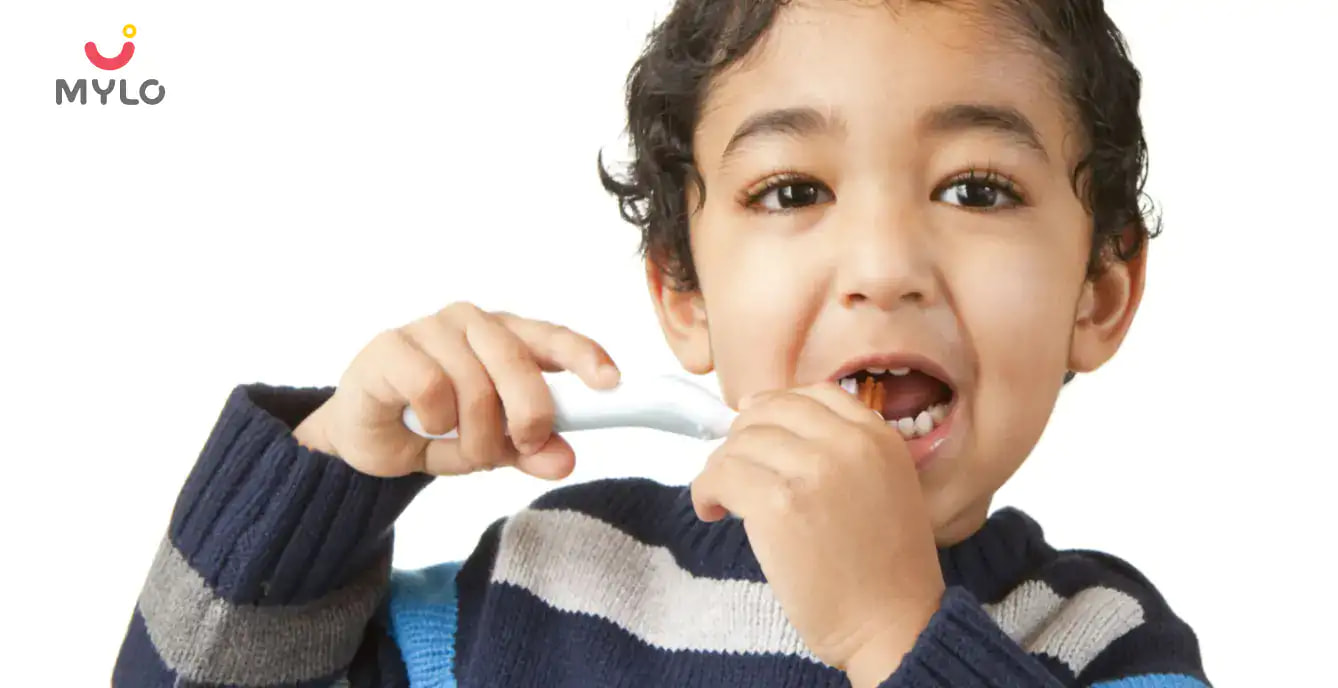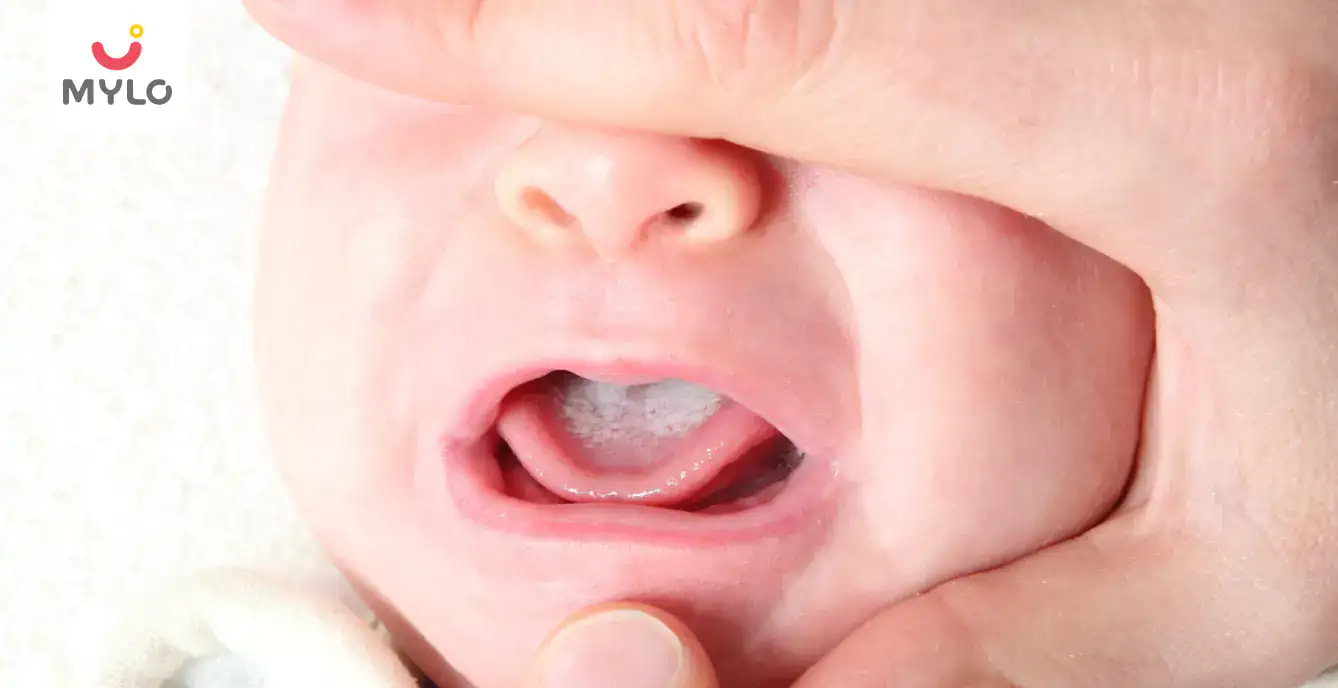Home

Daily Care Tips

Thumb Sucking: How to Help Your Child Break the Habit
In this Article
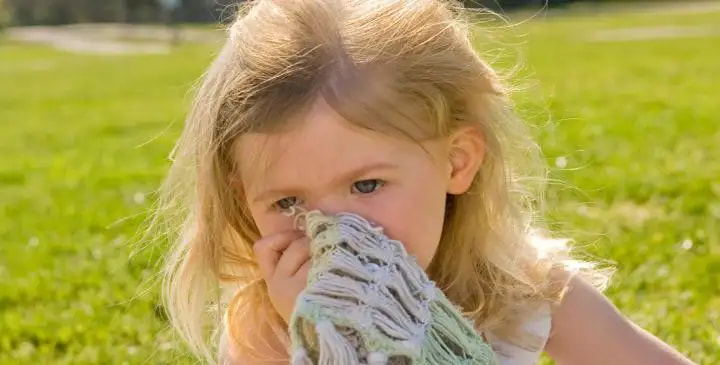
Daily Care Tips
Thumb Sucking: How to Help Your Child Break the Habit
Updated on 27 February 2024



Medically Reviewed by
Kusum Sabharwal
Obstetrician & Gynecologist - MBBS| DGO
View Profile

Thumb sucking is a common habit among babies, toddlers and even children. Some babies start sucking their thumb right from the womb. Watching your baby sucking thumb in the ultrasound must have been adorable but it can be worrying when they continue it on the other side too. Gradually, babies begin to suck objects, pacifiers, toys, and fingers too. This habit may soothe them when their teeth are erupting but it can end up mispositioning the teeth and cause dental problems.
In this article, we will discuss the causes of thumb sucking in children, how long it lasts, when to intervene and some easy ways to stop thumb sucking in your little one.
Thumb Sucking Meaning
Thumb sucking is a natural reflex that babies develop in the womb. It provides them with comfort and security. As they grow, it becomes a way for children to self-soothe and cope with various emotions such as anxiety, boredom, or tiredness. It is a normal behavior for infants and toddlers, but it can become a problem if it persists beyond a certain age.
What are the Causes of Thumb Sucking in Children?
There are several factors that can contribute to thumb sucking habit in children. Understanding these causes can help you address the root of the habit and find effective solutions. Here are five common thumb sucking causes:
1. Hunger
If you catch your baby sucking thumb, it may be a sign of hunger. Babies may suck their thumbs when they are not yet able to communicate their needs effectively.
2. Insecurity and Anxiety
Children may turn to sucking their thumb as a way to cope with feelings of insecurity or anxiety. It provides them with a sense of comfort and helps them feel safe.
3. Boredom
When children are bored, they may resort to sucking their thumb for entertainment. It becomes a habit that keeps them occupied.
4. Imitation
Children often imitate the behavior of others, including their parents or siblings. If they see someone close to them sucking their thumb, they may start doing it too.
5. Sleeping Difficulties
Thumb sucking can be a response to sleeping difficulties. Children may use it as a way to fall asleep or soothe themselves during the night.
You may also like: How to Tell if Baby Is Still Hungry After Breastfeeding
What are the Side Effects of Thumb Sucking Habit?
While thumb sucking may seem harmless, it can have several negative effects on your child's oral health and development. Here are five side effects of this habit:
1. Misaligned Teeth
Prolonged thumb sucking can cause the teeth to shift out of alignment. It can lead to an open bite, where the front teeth don't come together when the back teeth are closed.
2. Speech Problems
Thumb sucking can interfere with the development of proper speech. It can affect the way the tongue moves, leading to lisping or other speech impediments.
3. Dental Malocclusion
Sucking on one’s thumb can result in dental malocclusion, which refers to the misalignment of the upper and lower teeth. This can affect the bite and the overall appearance of the smile.
4. Skin Problems
Constant moisture from sucking the thumb can cause skin problems around the mouth. The skin may become chapped, dry, or even develop a rash.
5. Social Stigma
As children grow older, thumb sucking habit can become a source of embarrassment and social stigma. It may affect their self-esteem and confidence.
You may also like: Tongue Tie: Meaning, Symptoms & Causes
When to Stop Thumb Sucking?
As a parent, you may wonder when it is the right time for your child to stop sucking their thumb. The answer varies from child to child, but most experts agree that thumb sucking should cease by the age of 4. By this age, the permanent teeth start to come in, and prolonged thumb sucking can lead to more severe dental problems. If your child continues to suck their thumb after the age of 4, it is important to intervene and help them break the habit.
You may also like: Experiencing the Terrible Twos: What to Expect
How to Stop Thumb Sucking?
Breaking the thumb sucking habit requires patience, understanding, and gentle guidance. Here are five easy ways to stop thumb sucking in your child:
1. Identify Triggers
Observe when and why your child sucks their thumb. Identify triggers such as boredom, anxiety, or fatigue. Once you know the triggers, you can help your child find alternative ways to cope with those emotions.
2. Distraction Techniques
Engage your child in activities that keep their hands and mind occupied. Provide them with toys, puzzles, or arts and crafts projects that can distract them from sucking their thumb.
3. Thumb Covers or Bandages
There are thumb covers and bandages available that can make thumb sucking habit less enjoyable for your child. These can serve as a reminder and discourage them from sucking their thumb.
4. Involve Your Child
Talk to your child about the negative effects of thumb sucking and involve them in the process of breaking the habit. Let them know that it's a team effort and that you are there to support them.
5. Positive Reinforcement
Encourage your child with positive reinforcement when they are not sucking their thumb. Praise them for their efforts and provide small rewards to motivate them.
You may also like: Communication in Toddlers: Milestones & Activities
Thumb Sucking Treatment
In some cases, your child may continue to suck their thumb despite your best efforts. If the habit continues to cause dental or speech problems, it may be necessary to seek professional help. A pediatric dentist or orthodontist can assess your child's situation and recommend appropriate treatment options. These may include the use of a thumb appliance or a habit-breaking device. The goal of treatment is to help your child break the thumb sucking habit and prevent any further complications.
You may also like: Bedwetting (Nocturnal Enuresis): Causes, Symptoms & Treatment
Final Thoughts
Thumb sucking is a common habit among children, but it's important to address it before it leads to lasting oral health issues. By understanding the meaning, causes, and potential side effects, you can take proactive steps to help your child break the habit. Remember to be patient, supportive, and consistent in your approach. With time and gentle guidance, your child can develop a happier and healthier smile, free from the thumb sucking habit.
References
1. Staufert Gutierrez D, Carugno P. Thumb Sucking. (2023). In: StatPearls [Internet]. Treasure Island (FL): StatPearls Publishing
2. Hakami Z, Maganur PC, Khanagar SB, Naik S, Alhakami K, Bawazeer OA, Alassiry AM, Vishwanathaiah S. (2022). Thumb-Sucking Habits and Oral Health: An Analysis of YouTube Content. Children (Basel)
3. Tanaka O, Oliveira W, Galarza M, Aoki V, Bertaiolli B. (2016). Breaking the Thumb Sucking Habit: When Compliance Is Essential. Case Rep Dent.





Medically Reviewed by
Kusum Sabharwal
Obstetrician & Gynecologist - MBBS| DGO
View Profile


Written by
Anupama Chadha
Anupama Chadha, born and raised in Delhi is a content writer who has written extensively for industries such as HR, Healthcare, Finance, Retail and Tech.
Read MoreGet baby's diet chart, and growth tips

Related Articles
Related Questions
Influenza and boostrix injection kisiko laga hai kya 8 month pregnancy me and q lagta hai ye plz reply me

Hai.... My last period was in feb 24. I tested in 40 th day morning 3:30 .. That is faint line .. I conculed mylo thz app also.... And I asked tha dr wait for 3 to 5 days ... Im also waiting ... Then I test today 4:15 test is sooooo faint ... And I feel in ma body no pregnancy symptoms. What can I do .

Baby kicks KB Marta hai Plz tell mi

PCOD kya hota hai

How to detect pcos

Related Topics
RECENTLY PUBLISHED ARTICLES
our most recent articles
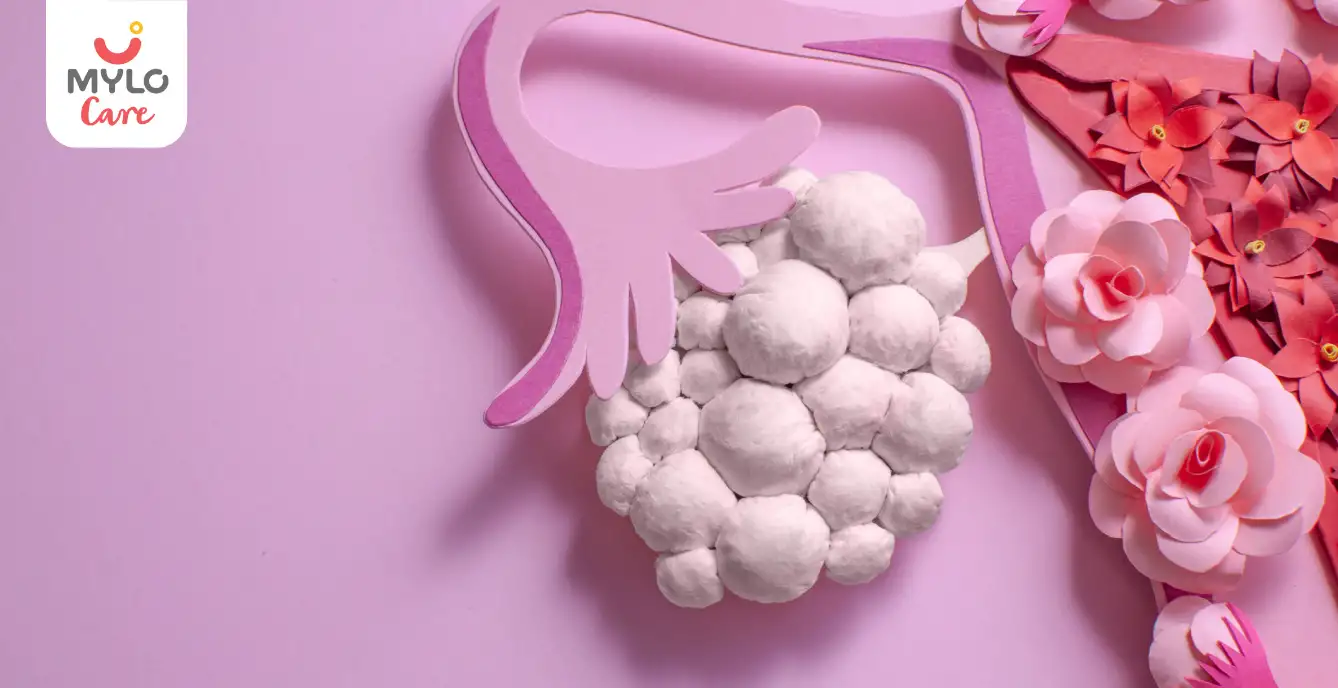
Women Specific Issues
The Ultimate Guide on How to Shrink Ovarian Cysts Naturally
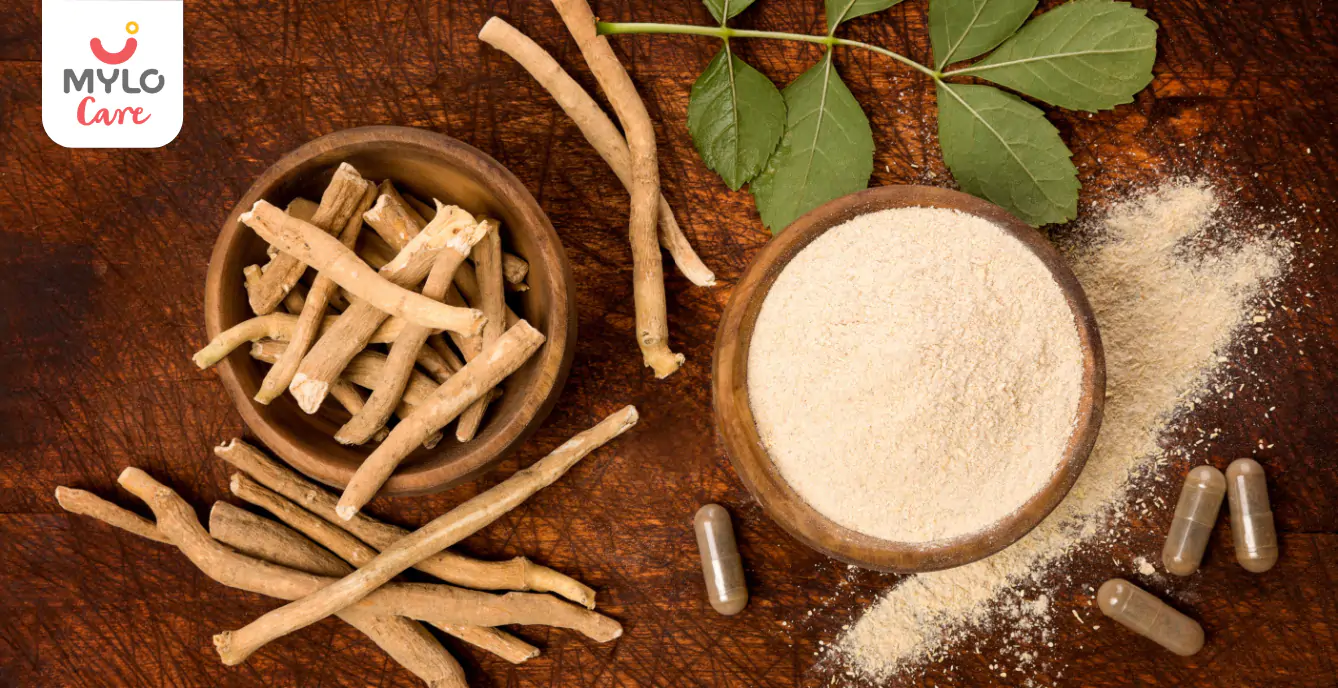
Conception
Ashwagandha Benefits for Female & Male Fertility: How This Ancient Herb Can Help You Conceive

Swaddling
What are the 12 things that parents can do with their baby in the first 12 months?

Medications
The Lowdown on Cetirizine in Pregnancy: A Must-Read for Expecting Moms

Play Activities
The Ultimate Collection of Paheliyan with Answer for Kids

Abdominal Pain
The Ultimate Guide to Abdominal Pain After Abortion Causes and Care
- Ovulation Kit 101: A Beginner's Guide to Tracking Fertility & Maximizing Your Chances of Conception
- Is Breast Pain after Abortion Normal? What You Need to Know
- Twin Pregnancy: Signs, Types & Risks
- Chasteberry Benefits: The Natural Remedy You Need for Infertility, Hormonal Imbalance, and PMS
- The Ultimate Guide to Planning the Perfect Baby Shower
- 50+ New Born Baby Wishes to Congratulate New Parents
- First Period After C Section: How Long Does It Last
- Introducing Solid Foods to your 6-month-old Baby? Here is a complete Food Chart along with some Nutritious Recipes
- What to expect about the height/length of 6 months old?
- The Development of Your Kid at the Age of Four Months
- Burping Your Baby
- What Is the Significance of Motor Skills in Children & How to Develop Them?
- The Ultimate Guide to Formula Milk: Everything You Need to Know
- Are baby monitors safe or dangerous for your little ones? How to protect your baby from EMF Radiations?


AWARDS AND RECOGNITION

Mylo wins Forbes D2C Disruptor award

Mylo wins The Economic Times Promising Brands 2022
AS SEEN IN
















- Mylo Care: Effective and science-backed personal care and wellness solutions for a joyful you.
- Mylo Baby: Science-backed, gentle and effective personal care & hygiene range for your little one.
- Mylo Community: Trusted and empathetic community of 10mn+ parents and experts.
Product Categories
baby carrier | baby soap | baby wipes | stretch marks cream | baby cream | baby shampoo | baby massage oil | baby hair oil | stretch marks oil | baby body wash | baby powder | baby lotion | diaper rash cream | newborn diapers | teether | baby kajal | baby diapers | cloth diapers |





